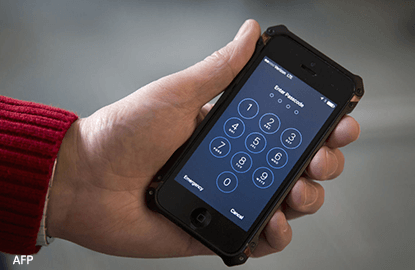
This article first appeared in The Edge Financial Daily, on March 3, 2016.
WASHINGTON: The battle between the Federal Bureau of Investigation (FBI) and Apple over encryption moved to Congress on Tuesday, with both sides arguing security is at risk in the legal wrangling over accessing a locked iPhone.
FBI chief James Comey defended his agency’s efforts to force Apple to help unlock an iPhone in the San Bernardino attack probe, saying that law enforcement’s job may be crippled by “warrant-proof spaces” that become inaccessible to investigators.
The hearing comes amid an intense legal and political battle after Apple said it would challenge a court order to provide the FBI technical assistance to help break into the San Bernardino iPhone.
Apple general counsel Bruce Sewell told the panel the public should understand that “encryption is a good thing, a necessary thing” — even if it makes the work of law enforcement more difficult.
He said Apple is being asked to develop a tool that could be used on any iPhone, even with more advanced encryption, which could make users vulnerable to hackers and government surveillance.
“This is not about the San Bernardino case — this is about the safety and security of every iPhone that is in use today,” Sewell said.
Apple has argued the FBI is effectively asking the company to “hack” its own devices and create a “back door” that malicious actors could exploit.
Lawmakers from both parties appeared sceptical about the FBI efforts, questioning whether they could lead to weaker overall security in the future for new technologies.
Representative John Conyers, a Michigan Democrat, said that the FBI’s legal efforts could be seen as an “end run” around the legislative process to step up its access to encrypted devices.
“I would be deeply disappointed if it turns out that the government is exploiting a national tragedy to pursue a change in the law,” he said.
Susan Landau, a cybersecurity specialist at Worcester Polytechnic Institute, backed Apple’s case on the risks of providing a weaker operating system. — AFP